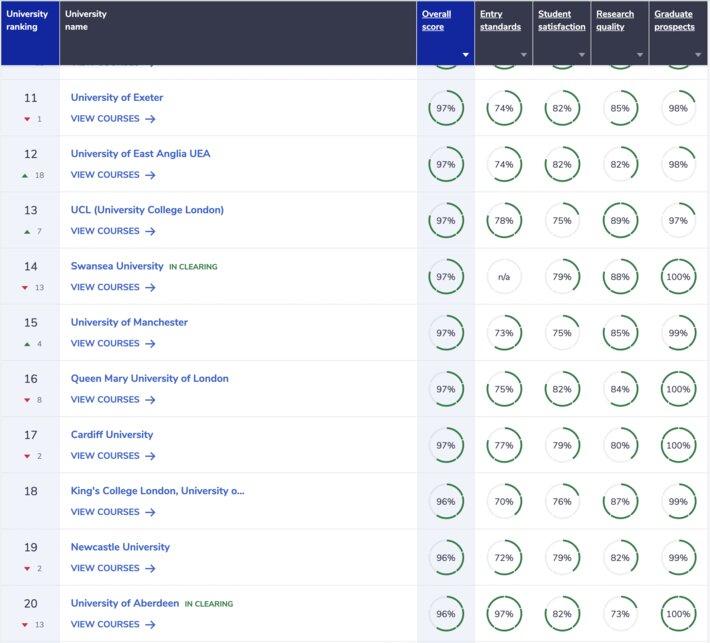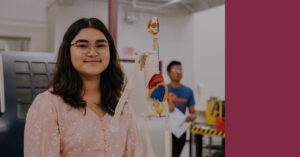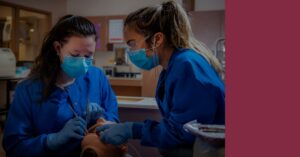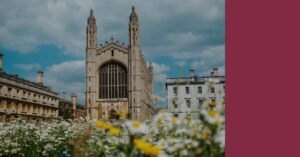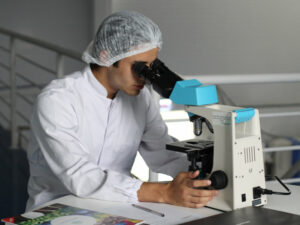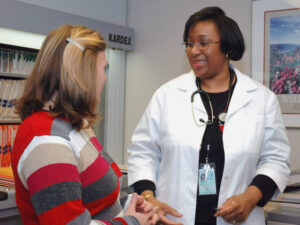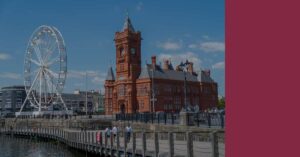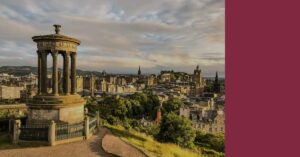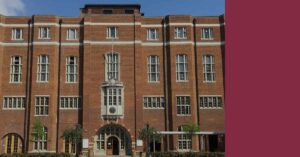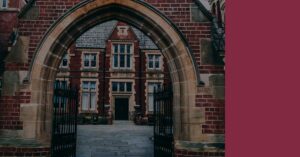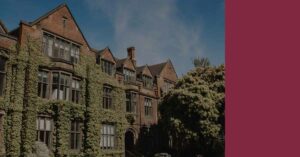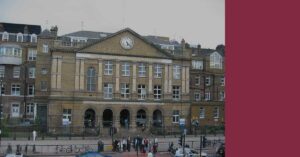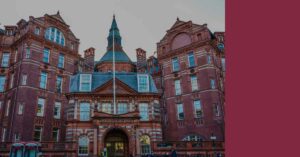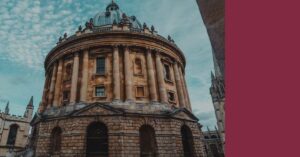Welcome to our UK Medical School Review series. In this series, we work with current students to produce an in-depth overview of each UK Medical School, covering what it is like to study there, how the course looks and what you need to get in.
Today we are exploring Newcastle Medical School, a member of the Russell Group of UK research-intensive universities. Catherine, a Newcastle Medic, will share her experiences and insights as a current student throughout.
Let’s start with some history of Newcastle Medical School…
Overview Of Newcastle Medical School
About Newcastle Medical School
Newcastle’s School of Medicine and Surgery, founded in 1834, provided the roots for Newcastle University as it is known today. Between 1851 and 1937, it served as the College of Medicine, in connection with Durham University, joining Armstrong College to form King’s College. This college then developed into Newcastle University in 1963. Nowadays, the Medical School is regarded as one of the largest in the UK with an annual intake of approximately 367 students.
There are 2 Medicine programmes on offer at Newcastle University: a 5-year Undergraduate course and a 4-year accelerated course for Graduates. Both lead to the award of a MBBS (Bachelor of Medicine, Bachelor of Surgery) degree.
Newcastle Medical School
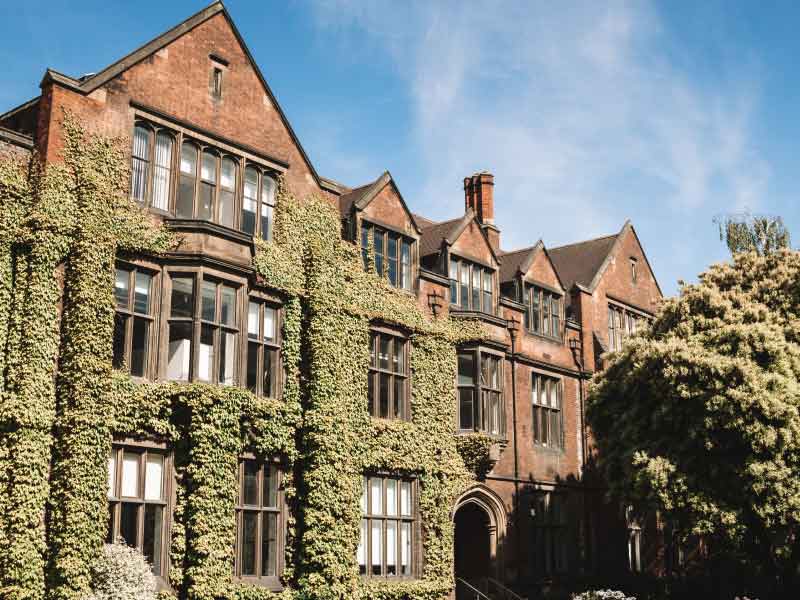
- University Age: 188
- UK Ranking: 19th
- Pint Price: £2.00
- Alumni Notability: 7/10
- A-level Requirements: AAA
- Places Available: 367
- Applicant Success Rate: 10%
- Teaching Style: Integrated
- Interview Style: MMI
- Admissions Test: UCAT
Newcastle Medical School Alumni
Notable alumni that have attended Newcastle Medical School include Milton Margai, the 1st Prime Minister of Sierra Leone and John Snow, discoverer of cholera transmission through water.
Why did you choose to study at Newcastle?
“I chose Newcastle for a variety of reasons – 1) The Open Day was like no other. Did you know that 99.8% of Graduates from Newcastle Medical School get into their first choice deanery? This was one of the facts I found out at the open day. Obviously, it doesn’t guarantee that I will get into my first choice but it provides a lot of reassurance for me. At the Open Day the staff were all so nice and really wanted to get to know you. I didn’t experience such a welcoming feeling from staff anywhere else – only students.
2) The football. Geordie fans are absolutely die-hard and it helps that Newcastle Student Union through the Give it a Go scheme provide tickets for certain matches for £21.50. 3) Case Based Learning. I didn’t want traditional learning and I didn’t want PBL. Case Based Learning is also another way of saying integrated and works so well for me.”
What is the best thing and worst thing about your Medical School?
“The best thing – placement. Getting to apply what you’ve learnt and actually feeling like a Medical Student is amazing. Taking histories, doing examinations. I love it and so do a lot of my fellow Medical Students. Another thing about Newcastle is that you have plenty of free time. Use as you please but doing a little bit of work consistently definitely goes a very long way.
The worst thing, however, always has to be exams. Medical School is fun but inevitably this is always what you are working towards! There’s a lot of exams and they’re definitely the worst time but it’s always worth it when you pass as that’s the aim!”
Medical School Rankings
The following link will take you to the Complete University Guide Medicine League Table. Here, you can see that the Newcastle University Medical School takes 19th position with an overall score of 96%:
Rankings will, of course, differ between other tables; the Guardian includes different aspects to the Complete University Guide. When making your own decision on which table to look at, think about what you place more importance on, such as spending per student or career prospects. Keep in mind that all Medical Schools are highly ranked with excellent ratings across the board.
Newcastle Medical School Fees And Financial Support
The annual tuition fee for home students for both programmes is £9,250. For international students, it is £36,000 per year for the 5-year Undergraduate programme and £45,000 for the 4-year accelerated Graduate programme. Tuition fee loans are offered to all UK students by the Government and cover the course fees in full. Fees do not have to be paid upfront.
Newcastle University offers a variety of scholarships and bursaries to help with funding, both general and STEM subject-specific. The team at the University welcome face to face or virtual appointments and drop-ins if you ever need individual support with costs.
What are the living costs like?
“Living costs have increased this year unfortunately as a result of the pandemic and rising gas and electricity costs. Housing ranges from £85 per week to about £120 per week if you choose to live in Jesmond where most Newcastle students choose to live. Cost of a pint – Medical Society get deals on pints for members. £2 pints at The Hancock and Bar Blanc!
Public Transport – Get a pop card! £2 travel all day in Zone A in Newcastle which covers the Medical School and Gateshead. Truth be told, everything is a walkable distance in Newcastle so there’s no real need to be using public transport in 1st or 2nd Year unless it’s to get to your placements. The Medical School is quite nice though and often provides transport when you are in your 1st or 2nd Year.”
Not sure where to start with your Medical School application?
Our Complete Bundle provides support for your Personal Statement, UCAT, BMAT and Interview and guides you to a successful application.
With our Complete Bundle, we guarantee that you will get at least one offer to study Medicine, or your money back.
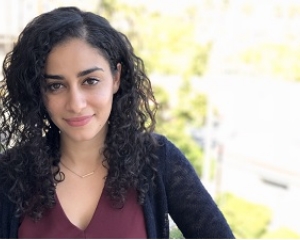

What Is Studying At Newcastle Medical School Like?
Newcastle uses an integrated teaching style throughout the course. The early years are dominated by case-based learning (CBL), lectures, clinical skills tuition, anatomy practicals using prosections, small group seminars and some clinical exposure in primary and secondary care settings.
As you progress to full-time clinical placement in Years 3 to 5, you are rotated around 3 geographical areas – out of Northumbria, Tees, Tyne and Wear – for placements in hospitals, GPs and community settings both rural and urban: 1 at sites close to the University campus, 1 that is commutable from the campus and 1 where you may be expected to live away from the campus.

Newcastle Medical School Degree Content
Years 1 and 2 will see students covering key subject areas in medical science to understand normal and abnormal function of every major body system and apply this clinically. This teaching will be delivered through a series of 25 cases. Students will also explore the practical and ethical principles underpinning Medicine to ultimately gain an understanding of patients from a biopsychosocial perspective. Years 3 to 5 places an emphasis on gaining experience, specialist knowledge, professional development and skills ready to be a Doctor.
During Year 2 there is a chance for students to spend a semester abroad in Malaysia at Newcastle Universities branch campus there. During the final 3 years of the programme there will be 2 4-week student selected component (SCCs) modules.
Newcastle offer the opportunity to intercalate, it is not compulsory. This can take place in Newcastle or at another institution and can be used for students to pursue a specific field of interest. Intercalation can either occur after Year 2, where you undertake the final year of a bioscience degree leading to a BSc Honours degree, or after Year 4, where you can choose a postgraduate programme for a Masters.
Following successful completion of Year 4, students undertake an 8-week elective period. You can travel anywhere in the world or choose to stay in the UK. Again, this allows you to gain hands-on experience and enhance your knowledge in whatever area of clinical or non-clinical Medicine interests you.
A range of assistantships must be undertaken in Final Year to prepare students for their Foundation posts as Doctors.
Summary of the curriculum:
Year 1 and 2:
- Stage 1:
- Induction and Student Support 1
- Molecules to Disease
- Life Cycle 1
- Nutrition, Metabolism and Endocrinology 1
- Cardiovascular, Respiratory and Renal Medicine 1
- Clinical Skills and Communication 1
- Patients, Doctors and Society 1
- Clinical Pharmacology, Therapeutics and Prescribing 1
- Life Cycle 2
- Induction and Student Support 2
- Nutrition, Metabolism and Endocrinology 2
- Cardiovascular, Respiratory and Renal Medicine 2
- Clinical Skills and Communication 2
- Patients, Doctors and Society 2
- Clinical Pharmacology, Therapeutics and Prescribing 2
- Stage 2:
- Induction and Student Support 3
- Thought, Senses and Movement
- Clinical Skills and Communication 3
- Patients, Doctors and Society 3
- Induction and Student Support 4
- Clinical Sciences and Investigative Medicine 1
- Clinical Pharmacology, Therapeutics and Prescribing 3
- Life Cycle 3
- Clinical Skills and Communication 4
- Patients, Doctors and Society 4
Year 3:
- Placements:
- Long-term Conditions (8 weeks)
- Foundations of Clinical Practice (15 weeks)
- Infection and Clinical Practice (4 weeks)
- Child and Adolescent Health (4 weeks)
- Primary Care (4 weeks)
- Mental Health (4 weeks)
- Women’s Health (4 weeks)
Year 4:
- Semester 1:
- Clinical Sciences and Investigative Medicine
- Patients, Doctors and Society
- Clinical Pharmacology, Therapeutics and Prescribing
- Semester 2:
- SSCs
- Elective placement (8 weeks)
Year 5:
- Child and Adolescent Health (3 weeks)
- Primary Care (3 weeks)
- Mental Health (3 weeks)
- Women’s Health (3 weeks)
- Patients, Doctors and Society: Preparation for Practice (3 weeks)
- Hospital-based Practice
The Newcastle Graduate course is an accelerated 4 years. In Years 1, students receive a condensed version of the Undergraduate programme’s Years 1 and 2. Upon completion of Year 1, graduate students are integrated into Year 3 of the Undergraduate course and join these students in their clinical years.
The 5-year Dental Surgery course involves high levels of clinical practice in our specialist clinics, alongside theoretical aspects of dentistry, covering:
- Human structure
- Function
- Behaviour
- Clinical dental studies
- Related sciences
What Makes Newcastle Medical School Unique?
What makes your Medical School unique?
“Firstly, we have a range of medical societies at Newcastle from Surgical Society to Newcastle First Aiders, allowing Medical Students to essentially be paramedics and work shifts. They’ve been called out to births and heart attacks to give treatments! Case-Based Learning is also amazing at Newcastle. We get a theme at the start of the fortnight and use that to learn everything from Anatomy to Physiology to Pharmacology. There’s also a vast amount of opportunities to get involved with such as research or if you meet a surgeon that you particularly get on with, they’re always happy to let you scrub in on some of their surgeries.
After Year 4, you can do an Integrated Masters either at Newcastle or another university of your choice. Some Universities don’t even allow you to do it externally. You can also do an intercalated BSc after Year 2. You have placement from your 1st Year at Newcastle, so you’ll have 5 placement days in Years 1 and 2 and then this increases to practically full time in Years 3 -5.”
Newcastle Medicine Selection Process
Stage 1: Applicants are screened against academic criteria.
Stage 2: Candidates are ranked according to UCAT score.
Stage 3: Those above the cut-off are invited for interview.
Stage 4: Applicants attend interview.
Stage 5: Scores from interview are compiled and offers made.
Newcastle Medical School Entry Requirements
| Exam | Undergraduate Medicine |
|---|---|
| GCSEs | AAA in any subject. If taking Biology, Chemistry or Physics a pass in the practical element is required |
| A-levels | AAA including Chemistry or Biology and one of Biology, Chemistry, Physics, Mathematics or Psychology |
| IB | Overall score of 38 points including a minimum of grade 5 in all subjects |
| Other | Scottish qualifications, Irish Leaving Certificate, Cambridge Pre-U |
| Exam | Graduate Entry |
|---|---|
| Degree | An upper second-class honours in your first degree in any subject |
| Exam | BDS Dental Surgery |
|---|---|
| A-levels | AAA including Chemistry and Biology. For Biology, Chemistry and Physics A Levels, we require a pass in the practical element. |
| IB | A minimum of 37 points with Chemistry and Biology at Grade 6 or above at Higher level. |
Craft an application worthy of Newcastle with 6med!
Our Complete Bundle provides support for your Personal Statement, UCAT, BMAT and Interview and guides you to a successful application.
With our Complete Bundle, we guarantee that you will get at least one offer to study Medicine, or your money back.


Newcastle Medical School Personal Statement
Your personal statement is likely to be used at some point in the application process to Newcastle Medical School. They encourage you to focus on your reasons for applying and what motivates you to study Medicine and pursue a career in the medical field. Try not to be too cliché, descriptive, general or romantic.
Newcastle stress the importance of reflection in your statement. They want to know what you have learnt from your experiences, how they challenged your views and what you learnt as a professional. It is important to gain some work experience related to healthcare, whether in a primary, secondary or community setting. Show you have the core values and skills of a good doctor.
Finally, remember you are more than just Medicine. Include your hobbies and extra-curriculars to show how well-rounded you are as an individual, as well as emphasise the skills you possess that would make you right for the job.
Newcastle Medical School Admissions Tests
UCAT
All applicants applying to the Undergraduate and Graduate courses need to undertake the University Clinical Aptitude Test (UCAT). Newcastle Medical School has a cut-off score for candidates. This changes each year and cannot be predicted, however for reference, the threshold in 2021 for the Undergraduate course interviews was 2820, and 3030 for the Graduate course. Candidates with Band 4 in the Situational Judgement Test will be automatically rejected. The BMAT is not required.
Newcastle Medical School Interview
MMI Interview Style
Interviews at Newcastle take the form of Multiple Mini Interviews (MMIs). They typically take place between December and February. For 2021 entry, Newcastle interviewed 1,100 applicants, roughly 3x the number of places. There are 7 separate stations, each lasting 7 minutes with an extra 2-minute ice-breaker question at the 1st station. One station will be a role play.
Candidates will be assessed and graded in integrity, communication, empathy and self-awareness, motivation and commitment, compatibility with the programme, teamwork, personal organisation and resilience. Interviewers will not have seen or ask you directly about your personal statement however it is good to read over it so you have a useful basis for answering questions. Especially if you cover things like your motivation for studying Medicine in your personal statement.
Example Newcastle Medical School Interview Questions:
- What do you know about the course structure at Newcastle? (2018)
- Why do you want to study medicine at Newcastle specifically? (2019)
- What motivates you to study medicine (2021)
- What makes a good leader? (2020)
- What does integrity mean to you? (2020)
- Why is sincerity important in medicine? (2019)
- Describe a time when you have failed at something, and what did you learn about yourself from this failure? (2021)
- Speak to an actor, who doesn’t speak the same language as you. Try to explain the time they have to take their medicine. (2019)
- What are the possibilities of becoming a doctor after finishing the degree? (2021)
- Why Medicine compared to other health degrees? (2021)
- What makes you a good communicator? (2021)
- Without any hand gestures, verbally explain to the examiner how to tie a shoelace. (2021)
Extra-Curriculars at Newcastle Medical School
Outside of study time, what do most people get up to?
“In the pre-clinical years, you can often find us medics at North Terrace, which is a pub near the Medical School. They do £5 pizzas and loads of pub quizzes so are always good when wanting to take an afternoon off. On a Friday, most people will be at MedSoc. You get free diesel (an absolute concoction, you’ll have to try it). On Wednesday you get the afternoon off. Most people use this for sport and there are so many societies at Newcastle, from Frisbee to Netball to Quidditch and Rugby there’s something for everyone. The university use Give it a Go to provide a lot of free/subsidised activities.
Dog and Scone is always a favourite among students, good food in the presence of puppies. What more could you ask for? If you’re keen on nights out, Market Shaker is the best for pres and you’ll not find a medic who hasn’t ever stepped foot in Soho. It’s such a classic night out. There’s something for everyone.”
What is the Newcastle accommodation like?
“All the accommodation is really dotted around Newcastle. The closest to the Medical School will be Park View, Castle Leazes or Marris House. Park View has all en-suite rooms and is the most highly sought after accommodation in Newcastle with it being the newest one as well. It’s about a 2-minute walk from the Medical School. I literally used to roll out of bed at 8:50am and still make it for my 9am lecture. Castle Leazes also isn’t too far. Probably around a 5-minute walk from the Medical School across Leazes field where the cows will be in Summer.
Marris House is also right next to Park View so is the same distance to the Medical School, however, there aren’t any en-suites. Further out, in Town, there is Wellington St Plaza and The View. The accommodation is lovely with en-suites but they are a good 15-minute walk away from the Medical School.”
Newcastle Medical School Contact
Telephone: +44 (0)191 208 6000
Email: [email protected]
Postal address:
Newcastle University,
Newcastle upon Tyne,
NE1 7RU
Advice for Prospective Newcastle Medical School Students
What advice would you give to a first-year student starting at Newcastle Medical School?
“Don’t make your whole life about Medicine or you’ll get stressed out. There’s time for everything that you want to make time for. Enjoy yourself and make the most out of Medical School because it honestly is so much fun. Pay attention to lectures but if you’re having an off day, it’s fine. They record everything except seminars so there’s always time to catch up.
Keep your notes up to date. Try to finish the notes for each case before the next case starts. Even if you don’t know them, at least you’ve got them for when you want to start your exam revision. Spend time with friends and speak to your family. Medical School is hard and you’ll need some form of outlet. Lastly, good luck!”
Check out our other UK Medical School Reviews:
Not sure where to start with your Medical School application?
Our Complete Bundle provides support for your Personal Statement, UCAT, BMAT and Interview and guides you to a successful application.
With our Complete Bundle, we guarantee that you will get at least one offer to study Medicine, or your money back.


By Phoebe Baker
